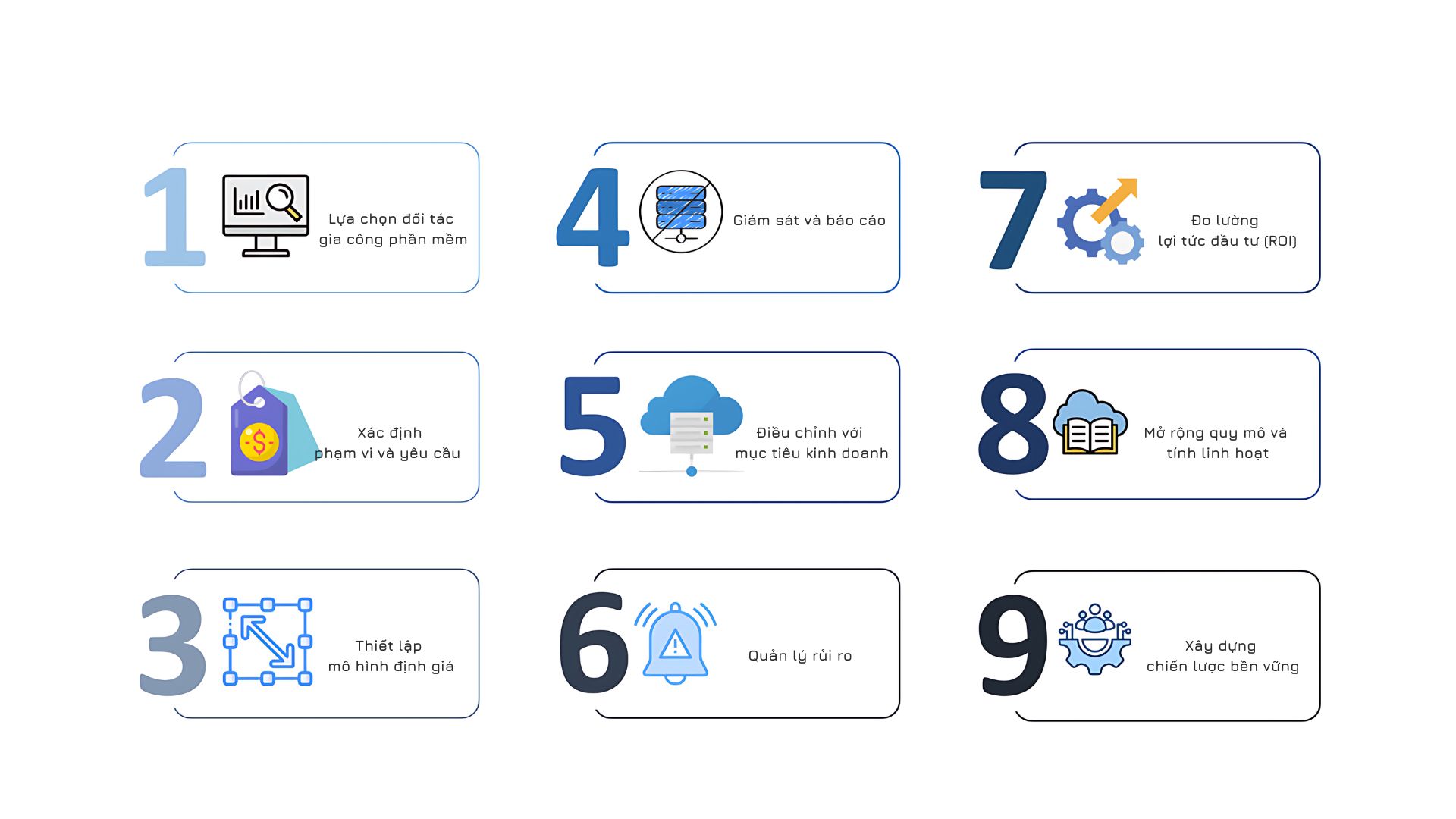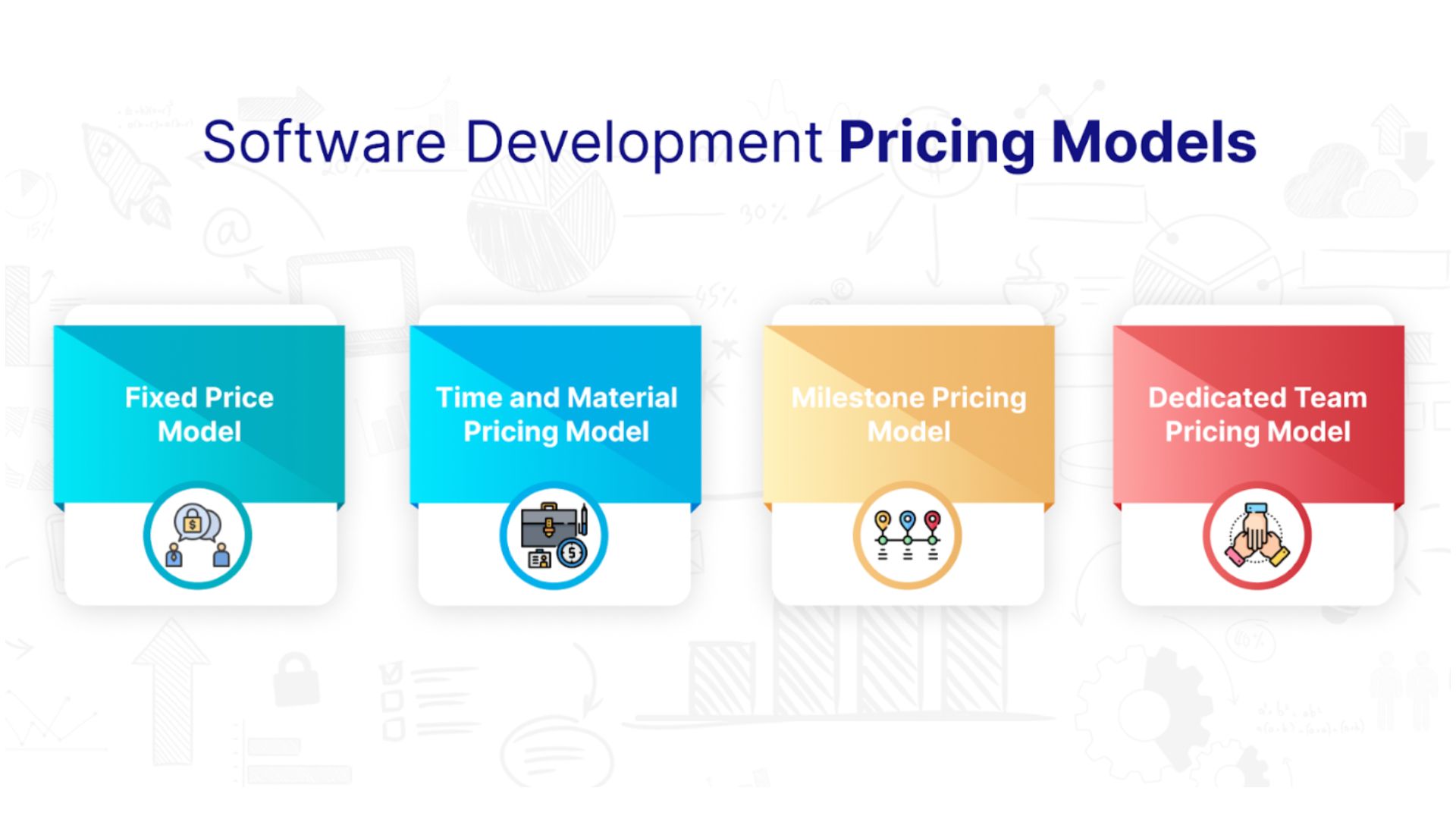Effective cost management is vital for the success of any software project. It significantly influences both project outcomes and the long-term viability of the business. However, it poses significant challenges due to the intricate nature and unpredictability of such projects. According to McKinsey, large software development outsourcing endeavors typically surpass their budget by over 45% and lag behind schedule by 7%, delivering only 56% of the expected value.
These figures underscore the vital need for rigorous cost management from project initiation. Managers must devise a comprehensive strategy encompassing detailed budget planning, continuous monitoring, and appropriate cost control measures. This approach optimizes resource utilization, minimizes waste, and ensures the project meets predefined objectives in terms of cost, schedule, and quality.
The hidden costs of an outsourced development team
Furthermore, while outsourcing can ostensibly reduce labor costs, it also introduces hidden expenses that warrant careful consideration. From limited transparency to the costs associated with personnel training, these factors can significantly impact overall expenditures if not effectively managed.
Limited Transparency
When businesses engage with an outsourced development team, closely monitoring the team’s activities and productivity becomes challenging. Without direct oversight, accessing detailed information about resource allocation and personnel costs at each project stage becomes limited.
Moreover, verifying the reasonableness of additional expenses like management fees, travel costs, and support tools becomes tricky due to incomplete information. Evaluating effectiveness and comparing investment returns to actual costs becomes nearly impossible, posing disadvantages for businesses.
Contract Negotiation and Control Costs
Choosing to outsource software development services entails significant expenses related to negotiating and managing intricate contract terms. Legal fees for safeguarding rights and negotiating confidentiality and intellectual property terms are often substantial. Additionally, the company must allocate substantial funds to clearly delineate the project’s scope of work and desired output standards. This expenditure may encompass consulting fees and the engagement of external experts to assess contracts and service provider capabilities. Another challenge arises from unforeseen costs outside the original contract scope, such as changes in key personnel or project delays, making cost prediction difficult.
Request Management
Handling requirements, particularly changes to requirements, poses challenges when collaborating with an outsourced team. This difficulty arises from involving various stakeholders like suppliers, customers, and third parties, which complicates the process of agreeing on requirements and validating changes.
Moreover, differences in language and culture amplify communication and requirement verification costs. Inaccurate estimation of necessary adjustments often results in software and design modification expenses that far exceed the initial estimate. These adjustments also lead to project delays, incurring additional storage and maintenance costs unnecessarily.

Training Costs
When outsourcing, companies not only invest in training the external team on processes, technology, and business standards but also incur expenses in transferring essential knowledge and documents related to the core product and business domain.
Additionally, internal staff require training to effectively supervise and manage the external team, adding to training costs. Managing and documenting these training sessions further burdens the project budget.
Security Risks and Information Security
Security and information security risks are paramount concerns for businesses considering outsourcing. Setting up systems and processes to safeguard data and sensitive information, along with providing training to enhance information security awareness among the outsourcing team, requires substantial investment.
Implementing measures to monitor network security, detect, and prevent information leaks also incurs significant costs. However, the most significant risk lies in the potential aftermath of a security breach, which could entail considerable expenses to mitigate consequences and compensate for damages.
Cultural and Regional Disparities
Collaborating with an outsourcing team inevitably introduces cost challenges stemming from cultural and regional differences. To address language barriers, businesses often need to invest in hiring translation experts and individuals well-versed in local cultures.
Divergent time zones pose a substantial obstacle, complicating progress management and necessitating expenses for coordinating work and scheduling online meetings.
Moreover, travel and accommodation costs may escalate if the company must deploy staff for direct engagement and on-site training sessions with the outsourced teams as needed.
Effective cost management strategies in software outsourcing

Choosing a Reputable Software Outsourcing Provider
To streamline costs in software outsourcing, businesses should adopt a strategy for selecting reputable partners in the field. Transparency in the work process is paramount. A reliable provider will offer comprehensive reporting, regular project updates, and transparent insights into resource allocation and financial status. This fosters an environment where businesses can closely monitor investment effectiveness and manage costs efficiently.
Professional expertise is another key consideration. Priority should be given to providers with well-trained teams adhering to international standards like CMMI, ISO 27001, and ISO 9001. These certifications not only validate the ability to deliver high-quality products but also ensure efficient workflows, minimizing training expenses and mitigating information security risks.
Effective communication is also crucial. A provider with a team proficient in a common language and familiar with corporate culture can help businesses optimize translation and communication costs while mitigating risks stemming from cultural differences.

Clear Definition of Project Scope and Requirements
Precisely defining the scope and requirements of a project is crucial. Businesses should invest time in thorough research, outlining, and detailed explanation of the upcoming project. This process enables software outsourcing teams to fully understand the context, goals, and requirements, laying a solid foundation for subsequent contract negotiations.
The project scope should encompass several key aspects:
- Overall objective
- Functional and non-functional requirements
- List of specific features
- Anticipated launch schedule
- Key milestones, estimated durations, including dependencies, assumptions, and risk assessment.
Transparent presentation of these elements is essential to ensure consistent understanding among all project participants from the outset.
Establishing clear scope and requirements not only helps outsourcing service providers understand their commitments and responsibilities but also forms a robust foundation for the entire project’s effectiveness. Ensuring consistent understanding from the outset minimizes conflicts, risks, and costly adjustments later on.
Transparent Pricing Model
In software outsourcing, establishing a transparent and equitable pricing model is paramount for fostering a long-term relationship between parties. Service providers typically offer various flexible pricing models tailored to the scale, nature, and specific requirements of each project. Common models include retainer contracts, fixed project costs, time and materials billing, hourly billing, or fixed monthly fees.

Each pricing model comes with its own set of advantages and disadvantages, necessitating careful consideration from both parties to select the most optimal solution. During discussions, transparency is crucial as both parties must agree on terms and details based on the predefined project scope and requirements. The software outsourcing service provider will use this information to propose suitable pricing models and engage in negotiations to reach a final agreement.
Transparency in pricing not only ensures fairness and reasonableness for both parties but also lays the groundwork for building trust and sustainable relationships. Clear specification of cost factors, scope of work, and responsibilities from the outset enables parties to manage expectations effectively, minimizing misunderstandings and conflicts. This fosters more effective and streamlined cooperation towards the common project goal.
Regular Monitoring and Reporting
Regular monitoring and reporting are vital for the success of any software outsourcing project. Active and continuous participation from both parties is key. While contractors commit to maintaining transparency and keeping their clients informed, they also expect reciprocal engagement from their partners. Therefore, businesses must closely monitor project developments to ensure progress aligns with expectations.

From the outset of establishing a collaborative relationship, it’s essential for parties to clearly agree on outsourcing costs and the project progress roadmap. Building on this foundation, a detailed monitoring and reporting plan should be developed, outlining specific milestones and assessment indicators. This ongoing process, involving both parties, enables prompt identification of developments and issues, facilitating timely and appropriate measures.
Linking Outsourcing Decisions with Business Goals
In every software outsourcing project, aligning implementation decisions with the enterprise’s overarching business goals is paramount. Service providers must strive to deeply understand the organization’s strategy, development direction, and specific business objectives targeted by the project. This comprehensive understanding enables informed decision-making and adjustments, ultimately maximizing the contract’s value for customers.
Clear definition of business goals allows both parties to align project activities accordingly. From overall planning and resource allocation to technology selection and implementation methods, decisions should be made and adjusted in line with strategic objectives. This close alignment ensures efficient resource allocation and optimization across all project stakeholders.
Risk Management in Software Outsourcing
Risk management in software outsourcing involves implementing a comprehensive strategy to safeguard intellectual property rights, ensure information security, and assess the capabilities and reputation of outsourcing providers. Key measures include thorough partner research, stringent security protocols, and establishing robust legal frameworks with clear contractual terms. Effective risk management not only shields assets but also fosters trust, laying the groundwork for a enduring and successful partnership.
Measuring Return on Investment (ROI)
Evaluating return on investment (ROI) in software outsourcing is a multifaceted process that requires careful consideration of financial factors alongside the value added through collaborative efforts. ROI measurement goes beyond simple cost savings indicators, encompassing benefits such as enhanced operational efficiency and improved product and service quality.

To gain a comprehensive understanding, businesses should establish a set of evaluation indicators (KPIs) tailored to their specific circumstances and conditions. These indicators not only facilitate detailed analysis of the cost-benefit ratio but also offer valuable quantitative data to assess the effectiveness of outsourcing decisions compared to initial expectations.
In addition to direct financial metrics like revenue, profit, cash flow, and labor costs, non-financial factors such as labor productivity, time to market, customer satisfaction, and brand image are equally crucial. These can be measures of labor productivity, time to market, customer satisfaction or even brand image and reputation. All of these factors will help paint a comprehensive, multi-dimensional picture of the benefits that businesses gain from outsourcing software.
Expanding Scale and Flexibility in Outsourced Projects
Software outsourcing offers significant flexibility in adjusting resource scale according to project stages and business needs. Businesses can ramp up staff during peak periods and downsize during challenges to control costs. This flexibility, especially in long-term contracts, optimizes costs, enhances resource utilization efficiency, and enables swift responses to changes in technology, market dynamics, or strategic shifts. Scale flexibility serves as a valuable assurance for businesses, providing adaptability to evolving circumstances.
Balancing Cost Savings and Quality in Software Outsourcing Services
At Evotek, we recognize the challenge of striking a balance between cost savings and maintaining high quality in software outsourcing services. To address this, we’ve developed a robust operating model aimed at maximizing benefits for our customers in both areas.
Central to our approach is upholding rigorous quality standards throughout the entire process. Our team of QA experts is involved from the outset, establishing quality measures and checkpoints to ensure the product meets the highest standards before delivery.
In addition, we prioritize fostering close partnerships with our customers through effective communication and collaboration. Regular and transparent communication channels help maintain consistent awareness and allow for timely adjustments as needed. By employing Agile methodologies, we can swiftly adapt to changes, ensuring that our products always align accurately with customer requirements.
Backed by a team of seasoned professionals and strong project management capabilities, Evotek is dedicated to providing customers with cost-effective software outsourcing solutions without compromising quality. Our commitment is to maintain a harmonious balance between these two factors, ensuring that each project enhances your business’s competitive advantage.






